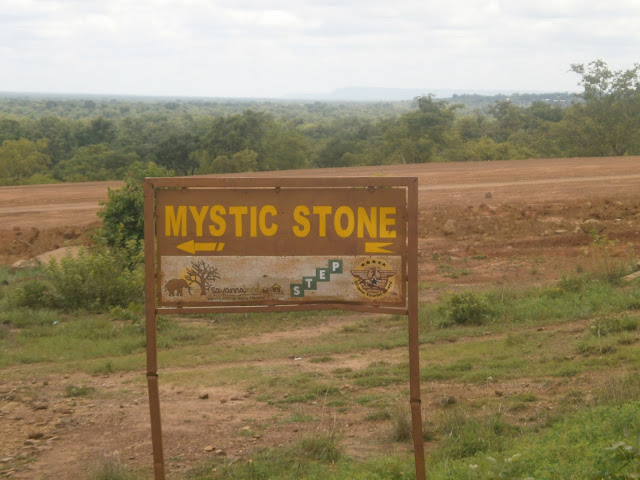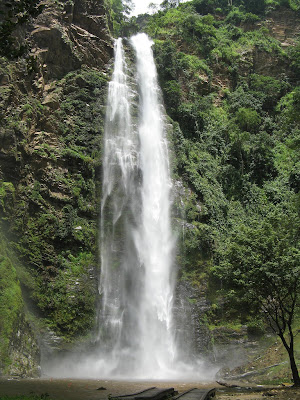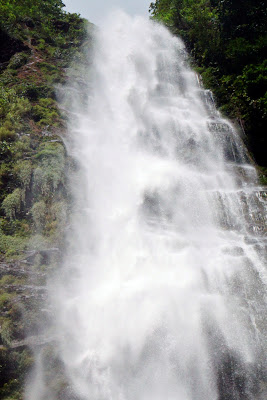Larabanga is a small town in
Western Gonja in Northern Region, 5 miles from Mole National Park. It is a
predominantly Muslim town and became famous because of the adobe Sahelian mosque
which was built in the style of buildings in the former Western Sudanese
Empires. It was at the height of the trans-Saharan trade. It is reputed to be
Ghana's oldest Islamic mosque. This adobe Sahelian mosque is said to date from
1421 has been included on the 2002 World Monuments Watch. The Sahelian mosque,
built with mud and reeds, has two tall towers in pyramidal shape, one for the
“Mehrab” direction towards Makkah forming the facade on the east and the other
as a minaret in the northeast corner. These are buttressed by twelve bulbous
shaped structures, which are fitted with timber elements.
More interesting during the
British times, there was a road that was laid near the Larabanga Mosque; a
stone was removed during the construction to make way for the road. The next
day, the stone was amazingly found again on the same place it was displaced
from. The mystic stone was again removed from the way and the same thing
happened on the next day. Later, the officials decided to build the road around
the stone and it became the mystic stone. The mosque is measures about 8 metres
by 8 metres and architectural style is also known as "flat-footed adobe
architecture".
The World Monuments Fund (WMF)
has contributed substantially to its restoration, and lists it as one of the
100 Most Endangered Sites. Thus, the repair works have revived the knowledge of
mud-plaster maintenance. It is believed to contain an ancient copy of the
Quran, brought by an Arabian cleric, who accompanied the people on their
migration to Larabanga. You can enjoy mosque and feel cultural atmosphere. The
Mosque is built of clay in Sudanese style architecture has supporting wooden
beams, jutting out of the walls. This site is located 6km away from Mole
National Prak and 30km away from Damango, there are clear signposts from Mole. The
local peoples have also been supported in a handicraft and tourism project to
generate moneys not only for meeting the maintenance expenses of the mosque but
also improve the economic conditions of the people.














































